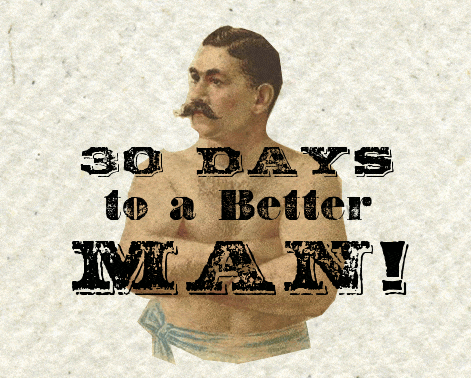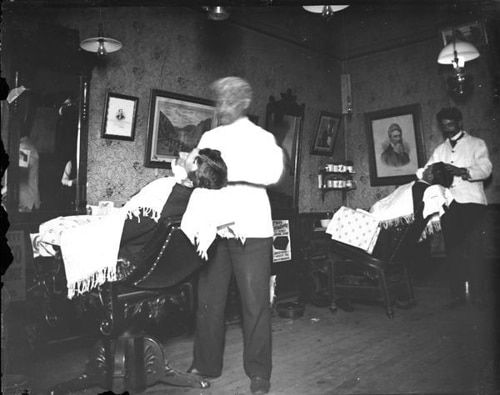I’ve recently been reading the book Team of Rivals about the men Abraham Lincoln picked for his cabinet. As I was reading it a few night ago, I was struck by this passage concerning the friendship between the future Secretary of State, William H. Seward, and his friend David Berdan:
“Together, the young men attended the theater, read poetry, discussed books, and chased after women. Convinced that Berdan would become a celebrated writer, Seward stood in awe of his friend’s talent and dedication. All such grand expectations and prospects were crushed when Berdan, still in his twenties was “seized with a bleeding at the lungs” while sojourning in Europe. . . The illness took his life…Seward was devastated, later telling his wife that he had loved Berdan as “never again” could he “love in this world.”
Such intimate male attachments as Seward’s with Berdan, or, as we shall see, Lincoln’s with Joshua Speed and Chase’s with Edwin Stanton, were a “common feature of the social landscape” in the nineteenth century America, the historian E. Anthony Rotundo points out. The family-focused and community-centered life led by most men in colonial era was transformed at the dawn of the new century into an individual and career-oriented existence. As the young men of Seward and Lincoln’s generation left the familiarity of their small communities and traveled to seek employment in fast-growing, anonymous cities or in distant territories, they often felt unbearably lonely. In the absence of parents and siblings, they turned to one another for support, sharing thoughts and emotions so completely that their intimate friendships developed the qualities of passionate romances.”
We have previously discussed the ardent friendships of the 19th century, and the interesting history of male friendship in general. And while much has changed in our world since Lincoln’s day, are we not still a society where we head from our hometowns to far flung locations in pursuit of career or college, and are we not still at times, if we can admit it, “unbearably lonely?”
Yet unlike the men of the 19th century, the men of today do not seek even closer friendships to enrich their lives and lend them support. Instead, under the excuse of being too busy, and out of the fear of being called a homo, we often distance ourselves from other men, trying to be the lone wolf. Or, as Wayne has pointed out, we look to female relationships to cure all of our hunger for intimacy.
Our Crumbling Connections
We are isolated more than ever before. According to a study conducted by the American Sociological Review in 2006, over the past two decades, the number of confidantes Americans feel comfortable discussing important matters with has shrunk by a third. 25% of the study’s respondents said they had no one with whom they felt comfortable discussing important matters, more than double the percentage who felt that way 20 years ago. And 20% said they had only one person with which to do so. The greatest drop in confidantes occurred in non-familial relations. Or in other words, our friends. ((http://74.125.95.132/search?q=cache:qeOLS1-ZbW0J:www.asanet.org/galleries/default-file/June06ASRFeature.pdf+2006+american+sociological+review+study+social+isolation+in+america&cd=1&hl=en&ct=clnk&gl=us))
What a lamentable state of things. Can we get by without any friends? Surely. But can friends enrich our lives and make us happier? Most definitely. There’s something invaluable about knowing that you are not alone in the world. That no matter what, there’s a guy out there who you absolutely know has your back. A friend that would come to your side if you were beset with a crisis.
So what was the difference between the men of the 19th Century and our day? Did they need friendships more some how? That’s debatable. Were they less busy? Men of today would probably like to think so. Busyness is our favorite excuse for why we can’t make time for the good things in life. But given that the men of the 19th century had no electricity, no modern appliances, no internet, no cars, no packaged meals, no cell phones, and no fast food, unless they were a slave owner, which the men above were not, then they weren’t sitting around all day twiddling their thumbs.
So what was the difference between them and us? They weren’t as distracted from what’s important in life as we are. They didn’t labor under the belief that watching Lost was an adequate substitution for friendship. And they didn’t think that checking a buddy’s Facebook update was equivalent to catching up with him.
It’s amazing that with the proliferation of time-saving devices these days, we feel busier then ever. Yet, it’s all relative. We’re not busier than ever. And if we feel that way, it’s because we aren’t prioritizing the right kinds of things in our lives. And that’s going to change this month, starting with today’s task.
Day 7 Task: Reconnect With an Old Friend
It’s not as if men like Speed and Lincoln had an edge on this friendship business because they stayed in one place their whole lives. Men back then were just like you; they made close friendships and then often went their separate ways. The difference is that they made the effort to stay in touch. Thomas Jefferson and John Adams were apart from each other for 14 years, yet they kept their friendship alive by writing 158 letters to each other.
So your task today is to make like men of old and reconnect with a friend, either by letter, phone, or email. Wild dogs shall be released upon any man who attempts to complete this task via Twitter.
I highly recommend the letter option myself. I personally don’t like talking on the phone. Letter writing is an excellent tradition to begin with your buddy, and unlike an email, it begs an answer and will almost certainly not be ignored.
This is not a task to arrange a hang out with your friend (that will come up later, rest assured); you need only to shoot the shiz and catch up on old times.
Let us know who you reconnected with and how you did it on the Community page.
Tags: Friendship


